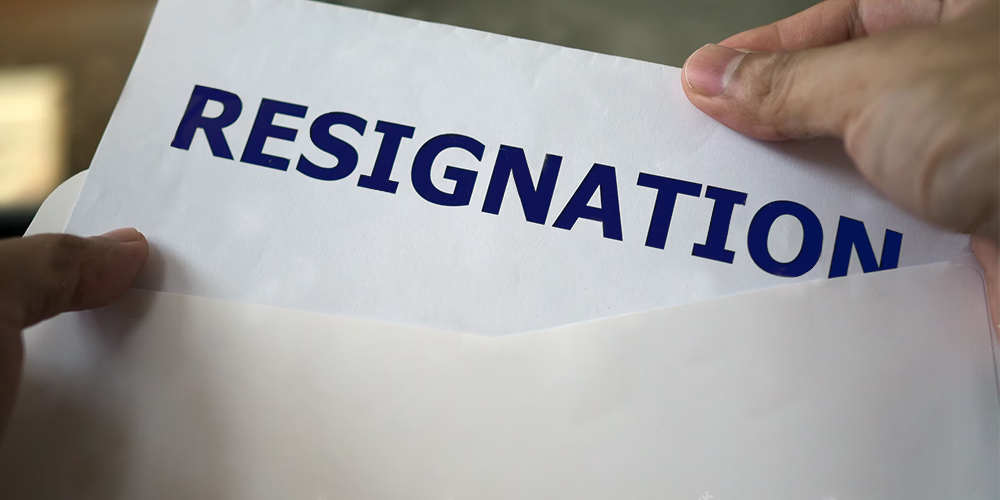
Resigning from a job is a significant step in your career journey. Whether you've found a better opportunity, need a change, or simply want to explore new horizons, leaving your current position requires careful consideration and professionalism. One of the most crucial aspects of this process is writing a two-week notice.
In this article, we will guide you through the art of crafting a respectful and effective resignation letter that leaves a positive impression on your soon-to-be former employer. We will also provide an example of a well-structured two-week notice.

The Purpose of a Two-Week Notice
Before you begin writing your two-week notice, it's crucial to understand why it's necessary. A two-week notice serves multiple purposes:
- It provides your employer with sufficient time to find a replacement or make necessary adjustments.
- It maintains professionalism and leaves a positive impression, which can be beneficial for future references.
- It fosters a smooth transition, minimizing disruptions in your department.
resume_5_dark_banner
How to Write a Two-Week Notice
1. Choose the Right Timing
Timing is key when it comes to resigning. Consider your current workload and ongoing projects within your organization. Avoid leaving your employer in a tight spot by choosing an appropriate time for your departure. If possible, align your two-week notice with the end of a project or a natural lull in your workload.
2. Compose a Clear and Concise Letter
Your resignation letter should be clear, concise, and to the point. Here's an example of a well-structured two-week notice:
[Your Name]
[Your Address]
[City, State ZIP Code]
[Email Address]
[Phone Number]
[Date]
[Supervisor's Name]
[Company Name]
[Company Address]
[City, State ZIP Code]
Dear [Supervisor's Name],
I am writing to formally resign from my position as [Your Position] at [Company Name], effective two weeks from today, [Last Working Day – Typically 14 days from the date of the letter, e.g., October 15, 2023].
I want to express my deep gratitude for the opportunities and experiences I have had during my time at [Company Name]. I have learned and grown both personally and professionally, and I am sincerely thankful for the support and guidance provided by you and the entire team.
I am committed to ensuring a smooth transition during this period. I am willing to assist in training my replacement, documenting essential processes, or providing guidance to my colleagues as needed. Please let me know how I can be of assistance to facilitate this transition.
I am confident that this decision aligns with my long-term career goals, and I believe it is the right step for my personal and professional growth. I will do my best to ensure a seamless handover of my responsibilities.
Thank you once again for the valuable experiences and opportunities I have had at [Company Name]. I wish the company continued success in the future.
Sincerely,
[Your Name]

3. Offer Assistance During the Transition
In your letter, express your willingness to help during the transition. This could include training your replacement, documenting processes, or assisting your colleagues in understanding your tasks. This proactive approach shows your dedication to ensuring a smooth handover.
4. Proofread and Edit
Before finalizing your resignation letter, review it carefully for any grammatical errors or typos. A well-written and error-free letter reflects positively on your professionalism and attention to detail.
cost_3_light_banner
5. Deliver the Letter in Person
Whenever possible, hand-deliver your resignation letter to your immediate supervisor. This personal touch demonstrates your respect for the company and your willingness to engage in a face-to-face conversation about your departure.
6. Prepare for a Conversation
Be prepared to discuss your decision with your supervisor or HR department. They may have questions or require clarification on the specifics of your departure. Approach this conversation with professionalism and honesty.
7. Maintain a Positive Attitude
Throughout the notice period, maintain a positive attitude and continue to fulfill your responsibilities to the best of your abilities. This will leave a lasting impression and ensure a smooth transition for both you and your employer.

Final Words
Keep in mind, writing a two-week notice is a crucial step in resigning from your job gracefully and professionally. By understanding the purpose of the notice, choosing the right timing, and composing a clear and concise letter, you can navigate this process with confidence and respect. Remember, resigning is a normal part of a career journey, and doing it right can leave the door open for future opportunities and references.
If you found this article helpful, be sure to explore Radviser's Library for more valuable articles on the application process, job hunting, career path, and many other related subjects. Our aim is to provide you with the knowledge and tools you need to succeed in your career endeavors.





